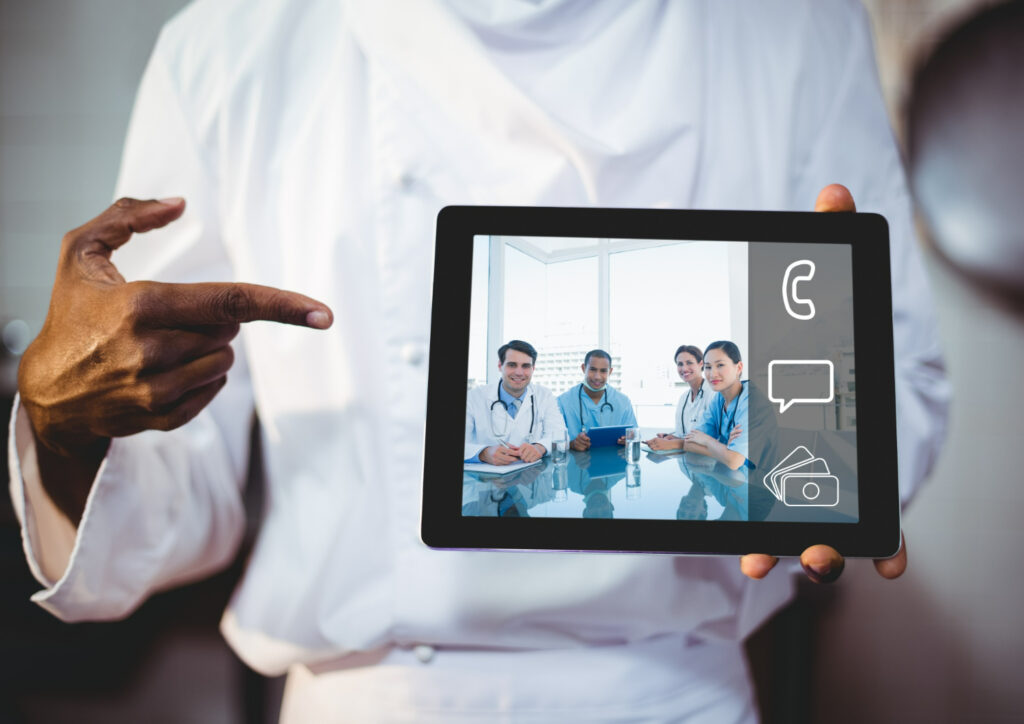In an era where technology intertwines with every aspect of our lives, digital health communications have emerged as a pivotal component of modern healthcare. From telemedicine to mobile health applications, the innovations in digital health are not just reshaping the way we approach medical care but also significantly enhancing patient engagement, accessibility, and health outcomes. This op-ed explores several success stories that highlight the transformative potential of digital health communications.
The Rise of Telemedicine
Telemedicine has revolutionized healthcare delivery, particularly evident during the COVID-19 pandemic. One notable example is the rapid expansion of services by health providers such as Teladoc Health. Initially focusing on non-emergency consultations, the platform quickly adapted to provide urgent care, mental health services, and chronic disease management.
In 2020, Teladoc reported a staggering 10-fold increase in telehealth visits, illustrating how patients embraced virtual consultations. This surge not only minimized exposure risks during the pandemic but also demonstrated the convenience of accessing healthcare from home. For many patients, especially those in rural or underserved areas, telemedicine bridged the gap to vital medical services.
Mobile Health Applications
Mobile health applications have become indispensable tools for health management. One standout success story is MySugr, a diabetes management app that empowers users to track their blood sugar levels, meals, and medications. By gamifying diabetes management, MySugr engages users and encourages adherence to their treatment plans.
A study published in the journal Diabetes Care found that users of MySugr showed significantly better blood glucose control compared to non-users. By facilitating real-time data sharing with healthcare providers, the app enhances communication and fosters a collaborative approach to diabetes management. This success underscores the potential of mobile health applications to improve patient outcomes through self-management and engagement.
Remote Patient Monitoring
Remote patient monitoring (RPM) has emerged as a vital component of chronic disease management. One remarkable example is the work of Philips in developing its HealthSuite platform. This platform enables healthcare providers to remotely monitor patients with chronic conditions, such as heart disease and diabetes, using connected devices.
By continuously tracking vital signs and health metrics, healthcare providers can intervene proactively, reducing hospital admissions and improving patient quality of life. In a case study involving heart failure patients, the use of RPM resulted in a 50% reduction in hospital readmissions within 30 days. This success not only highlights the efficacy of RPM but also demonstrates the importance of data-driven decision-making in healthcare.
Behavioral Health Innovations
Digital health communications have also transformed behavioral health services. One innovative platform, Talkspace, offers online therapy through text, audio, and video sessions. The convenience and accessibility of online therapy have attracted users who might otherwise avoid traditional therapy due to stigma or logistical challenges.
A 2021 study published in Psychiatric Services found that individuals using Talkspace reported significant reductions in symptoms of depression and anxiety. By leveraging technology to make mental health support more accessible, Talkspace has played a crucial role in addressing the growing mental health crisis exacerbated by the pandemic.
Health Literacy and Education
Digital health communications have also made strides in improving health literacy among populations. The Centers for Disease Control and Prevention (CDC) launched its “Get Smart” campaign to combat antibiotic resistance. This initiative utilized social media, mobile apps, and interactive websites to educate the public on the importance of responsible antibiotic use.
The campaign’s success is reflected in a significant increase in public awareness and behavior change regarding antibiotic consumption. By harnessing digital platforms for health education, the CDC demonstrated how effective communication strategies can lead to improved public health outcomes.
Challenges and Considerations
While these success stories illuminate the potential of digital health communications, it is essential to address the accompanying challenges. Issues such as data privacy, technological accessibility, and the digital divide remain critical concerns. As healthcare becomes increasingly digitized, efforts must ensure that all populations, especially vulnerable and underserved groups, have equal access to these resources.
Moreover, healthcare providers must receive adequate training to navigate these new technologies effectively. The success of digital health communications relies not only on the technology itself but also on the capacity of healthcare professionals to engage with patients meaningfully in this new landscape.
Conclusion
Digital health communications represent a significant leap forward in healthcare delivery, with numerous success stories that illustrate their potential to enhance patient engagement, improve health outcomes, and increase accessibility. As we look to the future, it is imperative to continue investing in these technologies while addressing the challenges they present. By fostering collaboration among stakeholders, prioritizing health equity, and ensuring data privacy, we can harness the full potential of digital health communications to transform healthcare for all.

More PR Insights
Corporate Communications in the Age of Transparency: A Double-Edged Sword
The Power of Transparent Communication in Corporate Culture
Power of Authentic Storytelling in Consumer PR